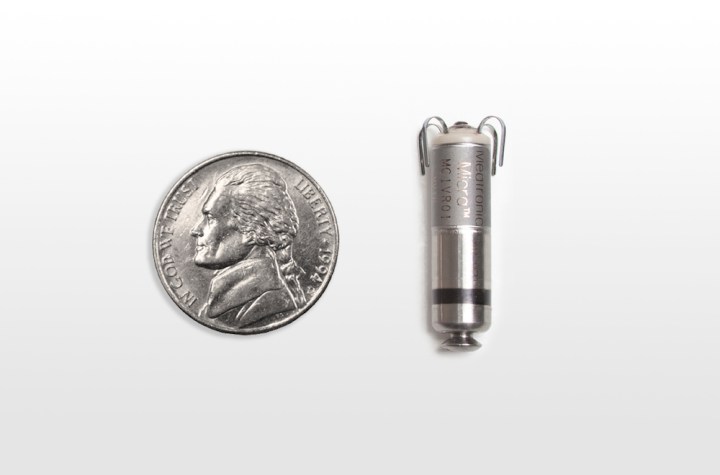
Pacemakers are a crucial part of cardiovascular health for many individuals around the world, but they aren’t always the most convenient technology to use. The Micra TPS is about the size of a large multivitamin, and it connects to the heart with small tines that deliver electrical impulses through electrodes. While other pacemakers deliver the same kind of jolt to the heart no matter what the circumstances, the Micra TPS can adjust the intensity of the electrical impulse based on a patient’s activity and health levels, and the type of cardiac event it is responding to.
Because this tiny pacemaker doesn’t require a surgical pocket under the patient’s skin, as with traditional devices, the Micra TPS is much easier to implant and more difficult to detect. As part of an extensive clinical trial phase, Medtronic reported that 96 percent of patients implanted with the Micra TPS experienced no major complications, which is down 51 percent from patients with traditional pacemaker devices.
The device’s longevity is another benefit for cardiovascular patients, since the Micra TPS can last for more than 12 years. Due to its size, it requires a minimally invasive procedure to insert the pacemaker through a catheter. And because many cardiovascular issues require regular monitoring, it is crucial to note that the Micra TPS will allow patients to go through the most advanced forms of MRI scanning without danger.


